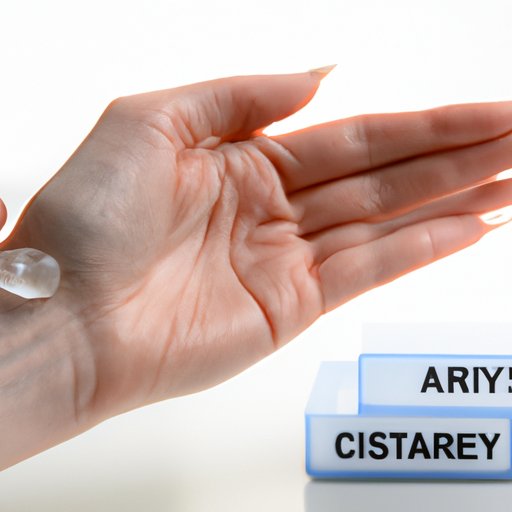
I. Introduction
Have you ever felt like the world is spinning when you stand up? Does your head feel foggy or dizzy at times?
If these symptoms are familiar, you may be experiencing ear crystals. Ear crystals, also called otoconia or canaliths, are small calcium carbonate crystals located in the inner ear. They are responsible for detecting head movement and adapting the body to sudden changes in position. However, as we age, these particles can become dislodged and flow into the wrong parts of the ear, causing balance issues and vertigo.
II. What are ear crystals and why do they occur?
Ear crystals, as mentioned, are small crystal particles in the inner ear’s otolith organs that help us detect head movements. They are an essential part of our balance system that works together with the eyes, joints, and muscles.
There are many reasons why ear crystals can dislodge and cause problems. One common reason is aging; as the body ages, the crystals can move more freely, leading to balance issues. Trauma to the head, ear infections, and medication that affects the inner ear can also lead to ear crystals.
Ear crystals can cause dizziness, vertigo, and unsteadiness. In severe cases, they can lead to falls and injuries. Thus, it is essential to prevent their occurrence as much as possible by taking care of our ears and bodies.
III. Understanding the impact of balance exercises
One of the best ways to prevent or alleviate ear crystals’ symptoms is to exercise. Balance exercises can help strengthen the vestibular system and improve the brain’s connections to the inner ear.
To start, try standing on one foot for 30 seconds to a minute. Then switch to the other foot, and repeat. This exercise is simple yet effective in training the body’s proprioception and improves balance. More challenging exercises can be added over time, such as squats on a balance pad or half squats on a wobble board. However, always remember to start with simple exercises and gradually increase the difficulty.
IV. Eating Healthy for Ear Health
A well-balanced and nutritious diet is vital to maintaining overall health, including ear health. Studies have shown that diets rich in fruits, vegetables, and antioxidants can reduce the risk of hearing loss and other ear issues.
The Mediterranean diet, in particular, is beneficial for ear health. It is high in fruits, vegetables, and omega-3 fatty acids that help reduce inflammation, which is a significant factor in hearing loss. Additionally, it limits unhealthy fats and sugars, which are known to cause inflammation and other health issues.
V. Hydration in Maintaining Health
Staying hydrated is essential for overall health, including ear health. The ears’ delicate systems rely on fluid to function correctly, so it is vital to drink plenty of water and avoid caffeine, alcohol, and soda that can dehydrate the body.
Dehydration can cause dizziness, tinnitus (ringing in the ears), and other ear-related problems. Thus, drinking water regularly and keeping the body hydrated can prevent these issues from occurring.
VI. Consulting a Doctor
If you experience prolonged or severe ear crystal symptoms, it is essential to seek medical attention. A doctor can help diagnose the problem and offer treatments such as physical therapy, medication, or specialized maneuvers to move the ear crystals back to their correct position.
A doctor may also recommend additional testing to ensure that the dizziness or other symptoms are not caused by other underlying health issues.
VII. Personal Habits
Good personal habits can help prevent ear crystals from occurring. Avoid smoking, as it can damage the ears’ delicate systems and lead to hearing loss. Additionally, keep good ear hygiene by cleaning the ears with a damp cloth, avoiding cotton swabs, and not inserting anything into the ears.
Avoid loud noises, such as concerts or loud machinery, and use ear protection such as earplugs when in noisy environments. Noise-induced hearing loss is irreversible, so it is essential to take precautions to protect the ears.
VIII. Conclusion
Ear crystals are a common issue that can lead to significant health problems, such as dizziness and falls. However, by building a healthy lifestyle and strengthening the body’s systems through regular exercise, good nutrition, hydration, and personal habits, we can reduce the risk of ear crystals and their complications.
Remember to seek medical attention if necessary and keep good habits to take care of your ears. With these tips, you can support your inner ear and improve your overall health and well-being.




